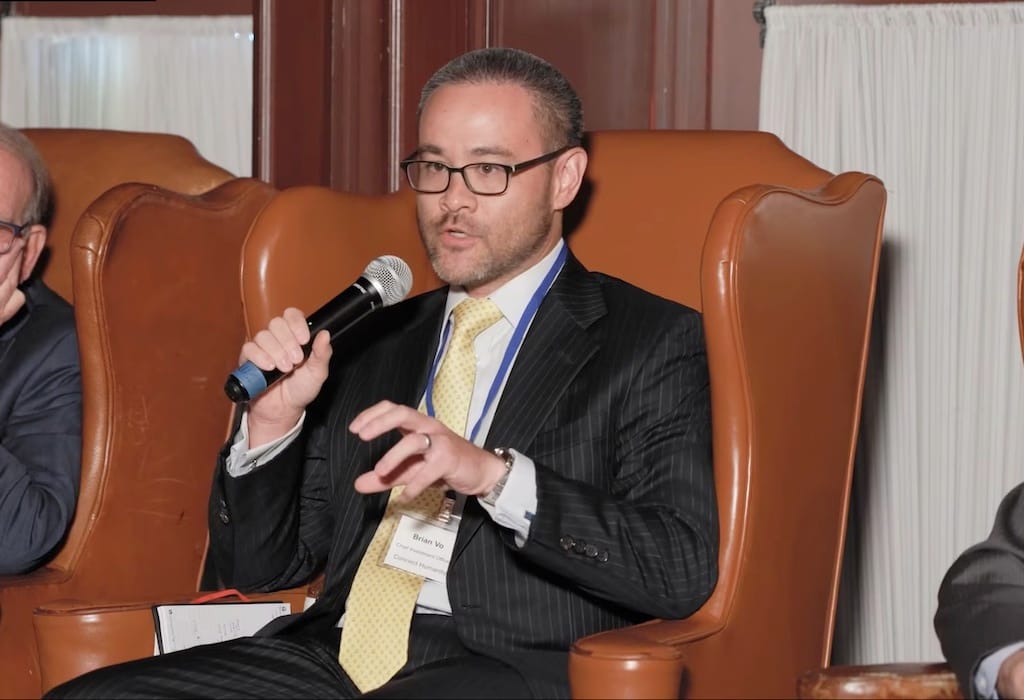BEAD Could Spur Private Investment in Network Expansion: Experts
BEAD efforts to stimulate private investment may hinge upon the availability of the Affordable Connectivity Program.
Jake Neenan

WASHINGTON, September 26, 2023 – Federal and state broadband grants can serve as catalysts for other sources of funding, experts said at the Broadband Breakfast BEAD Implementation Summit on Friday.
The $42.5 billion Broadband Equity, Access and Deployment program is providing an unprecedented amount in federal funds for expanding broadband infrastructure, but some states have estimated their allocations will fall short of the amount needed to get high-speed internet to all of their residents.
For Steve Coran, an attorney at Lerman Senter and counsel for WISPA, the trade group for fixed wireless internet providers, previous funding programs – the Rural Digital Opportunity Fund, known as RDOF, and the Connect America Fund, or CAF – are a source of hope. The certainty of federal funds, he said, has helped many of his clients secure private investments to serve rural areas.
Using that certainty “to generate additional capital investment is, I think, an underappreciated aspect of the RDOF and CAF programs,” he said.
Willie Heflin, managing director of investment firm Kinetic Ventures, said his experience investing in smaller internet service providers confirmed this. He pointed to a provider who received $187 million over 10 years from RDOF and was able to raise an additional $240 million from equity investors, including Kinetic Ventures.
“They were able to really build a company and provide services for people who weren’t getting it before,” he said.
Federally subsidized projects can also spur network expansion by making it cheaper and easier for communities to connect to nearby infrastructure, filling some of the holes left by funding programs, said Brian Vo, chief investment officer at Connect Humanity.
The extent to which BEAD projects will be able to stimulate private investment will hinge on the availability of affordability funds like the Affordable Connectivity Program, according to Blair Levin, an analyst at New Street Research and former executive director of the Federal Communications Commission’s National Broadband Plan.
“The single biggest delta for the economic models that will drive deployment in rural areas is whether the ACP is funded,” he said. “If it is, that makes the economics a lot easier. And if it’s not, it makes them a lot harder.”
The $14 billion program, established with the 2021 Infrastructure, Investment and Jobs Act, provides monthly internet subsidies of $30 for low-income households and $75 for residents of Tribal lands. It is set to dry up as early as April 2024, with no clear path to refunding.
If you missed the BEAD Implementation Summit, sign up for Broadband Breakfast’s BEAD Starter Pack for $35/month (cancel anytime). You’ll get access to all the videos and each of the three Breakfast Club reports prepared for the BEAD Implementation Summit:
- July 2023 – A Deep Dive into Allocations Under the Broadband Equity, Access and Deployment Program
- August 2023 – Precursors to BEAD Implementation: A Deep Dive Into Prior Broadband Programs
- September 2023 – A Deep Dive into the BEAD Program’s Matching Funds
Already a Broadband Breakfast Club member? Watch the videos!








Member discussion